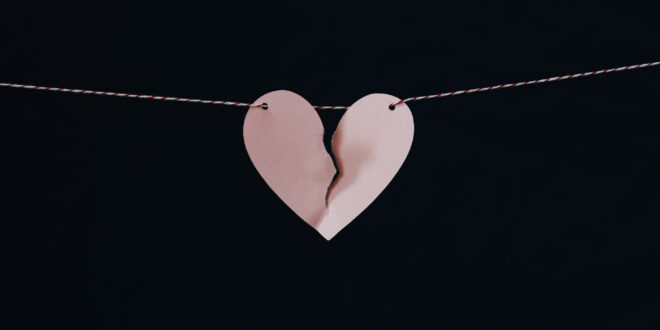Bad things do happen to good people. Each of us experiences situations where we feel robbed, slandered, mis-understood, cheated, or simply jerked around in life. The end result may be the loss of a job, a friend, a love interest, a business deal, or the creation of a rift between family members. The pain we feel is very real, very deep, and very private. Often it’s impossible for people around us to understand the scope, or the depth of the pain we carry as a result of the emotional wounding we’ve experienced. What then, do we do when life really hurts?
There are varying degrees of pain we often feel in response to situations inflicted upon us by other people. Some levels of pain are small, and we have the ability to let the situation roll off our back, letting us carry on in life as if nothing happened. For some, there are situations where the wound is so deep, we find ourselves crippled by it, not knowing how to get out from under the pain and the hurt that results. It’s in the midst of the choking pain, many people bog down in knowing what to do, or how to cope.
Through the course of my own painful experiences, I have learnt and identified key factors to help us deal with life’s pain. Other people’s list may include additional points or comments, but I believe there are a small handful of steps we must all take in dealing with life’s hurts.
Responding to Life’s Deep Hurts
1. Privately admit to yourselves, you’ve been hurt!
Own it. Embrace it. Every time we lose something of value in life, we will enter a grieving process. Recognize this and be honest about it. It’s important to start at a place of honesty, recognizing your pain for what it is – a grieving process. This process may seem so insignificant, but for many there is tremendous difficulty in admitting, ” I am feeling really hurt by this situation, and as a result, I’ve lost something very precious to me.”
2. We need to forgive our offender.
This step in the process is no where near as easy as it sounds, for it often goes against our human nature. Understand, that by forgiving our offender, we are not letting him or her off the hook as far as consequences are concerned. By forgiving, we’re letting our self off the hook. We’re giving up any motivation or thought of revenge. When a person refuses to forgive, they choose to carry the pain, the anger, the bitterness, of the situation around with them every minute of the day. To a person who doesn’t forgive, the situation becomes an emotional wound that festers with compounding or secondary emotional infection. Until we forgive our offender, our offender ends up owning our emotions.
Many people have a poor understanding of what forgiveness is. For those who find themselves in this position, a simple internet search under the heading “Understanding Forgiveness” will produce many good articles and aides on this subject.
3. Find a “safe friend” and share your pain with them.
We all have friends in our lives, but what is meant by the term “safe friend”? “Safe friends” are friends who listen to you, are empathetic with you, can advise you honestly, but the most important quality is the person’s ability to respect and maintain confidentiality. Not all friends are “safe friends”. “Safe friends” can be a current friend, a counsellor, a priest, a therapist, a law enforcement officer, a lawyer, someone who’s been through a similar situation, or a person recommended to you by a friend because your friend feels they simply can’t help you, but know of a person who can.
4. At some point in our healing process, we need to decide to carry on in life.
If we don’t carry on in life, then we’re choosing to let our offender win, and we’re choosing to be our offender’s victim. While this can be difficult to hear when we’re in the depths of a painful experience, being a “victim” is a choice, it’s a mental state, and it can be terribly crippling. For those caught in a victim mentality, it’s important to understand, they are in the position of strength, for they can choose to no longer be a victim by removing themselves from the conflict. If you feel you are being hurt by a person, and you find a healthy way to remove yourself from that situation, then that person has no more emotional power over you.
Often when people struggle with life’s hurts and pains, little thoughts of revenge enter into their minds. In the heat of the moment, many arguments can be made to seemingly justify getting back at a person, but is it the right decision. Acts of revenge are never considered a consequence. Revenge is one type of offence being exchanged for another. People who harbour desires for revenge are people who struggle with the aspect of forgiveness.
Recently, while in a conversation with a close friend, our conversation took on a more serious note. She began to share with me her critical situation of a serious internal family conflict between her and her brother. Her hurt was real, as was the pain caused her, but revenge is not a solution, for the act would haunt her in years to come at every family reunion, family wedding, family birthday, or family holiday. Her drug addicted brother would end up owning her emotions. There are many people in serious situations and it’s for this reason I share my friends story. In this particular case, and as I advised her, my friend’s solution lay in forgiveness, then seeking out a local “safe friend” in the law enforcement or legal community who could help her establish safe legal boundaries with this sibling, until he gained control of himself, and his social behaviours. For my friend, her boundaries might take on the form of having her extended family join her in introducing to the brother a drug rehabilitation intervention, perhaps it’ll take a restraining order, or perhaps lifting him totally out of his environment cutting him off from his drug source by giving him jail time. This may sound extreme for a family member to do, but remember this line, if you remember no other…”Better alive in a cell, than dead on the street!” The establishing of proper healthy boundaries is always a healthy life direction, and a good way for people to remove themselves from the role of a victim.
When life really hurts, there are positive solutions that empower us to live life to the fullest in spite of our wounding. We may have to change friends, and distance ourselves from reckless and immature associations, but we can bounce back, we can smile again, we can laugh, and we can rise above our circumstance. The choice is always ours.
Courtesy of James Tanner










Join the Discussion
Type out your comment here:
You must be logged in to post a comment.